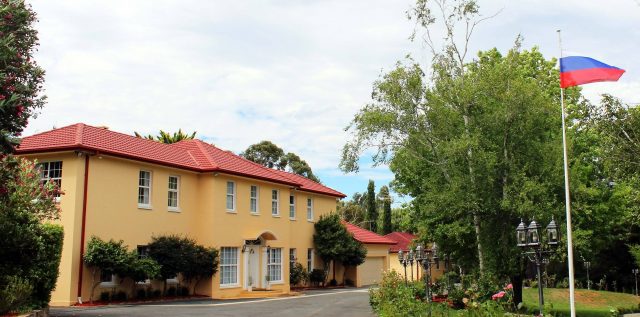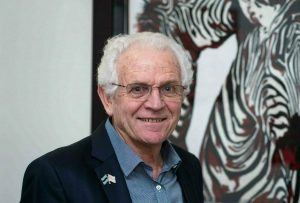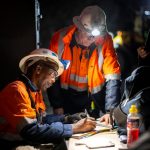Australia has stopped Russia from setting up its new embassy in the shadow of the Australian Parliament building after intelligence officials warned it posed a spying and security risk.
Russia has a lease agreement for a piece of land about 400 m from Australia’s parliament area in Canberra and is already busy laying the foundations of its new embassy. After failing to stop the development in the courts, the Australian government on Thursday passed new legislation designed specifically to stop the construction.
Anthony Albanese, Australia’s prime minister, says the legislation was quickly put together after a meeting of Australia’s national security committee.
“The government received very clear security recommendations about the danger posed by the new Russian presence so close to the parliament building,” says Albanese.
“We jump to ensure that the rental agreement does not become a formal diplomatic presence.”
A Russian diplomat said in light of the announcement that “the embassy is obtaining a legal opinion”.
The new legislation does not prevent Russia from maintaining a diplomatic presence in Australia – it only prevents the country from erecting a building so close to the parliament.
The legislation also provides for possible financial compensation due to the decision.
Skilled, aggressive
Dennis Desmond, a counterintelligence expert and former FBI agent, says it was reasonable to suspect that Russia would use the intended embassy as a base to spy on Australian politicians.
“The decision to place an embassy in a certain place obviously has very specific intentions,” he says.
“There are a variety of techniques and tactics they will use.”
Desmond says this includes signals intelligence and the pursuit of Australian officials.
Alex Bristow, a former British diplomat attached to the Australian Institute for Strategic Policy, says the government probably received an “express” warning from intelligence agencies.
“Given the location, it could be a form of electronic surveillance operated from the embassy,” he says.
“Russia has some of the largest, most skilled and aggressive intelligence services – which are also the least restricted – in the world.
“And they are given room to maneuver that we would never give to a Western intelligence service.”
Albanians say they expect some opposition from Russia.
“We don’t expect Russia to be in a position to talk about international law, given its rejection of it so continuously and so obviously with the invasion of Ukraine,” he says.
Agreement suspended
Russia acquired the plot of land in 2008 in terms of an agreement with the National Capital Authority, a federal department, and permission to start construction was granted in 2011.
The plan is to move the embassy from its current location; a colossus of a brick building in an unmodern part of the city overlooking a funeral home, a bar and a gas station.
Construction is not progressing too quickly and the site is still littered with rubbish and building materials.
Although the Australian government was initially comfortable with the plan, there has since been a scramble to stop construction as relations soured amid Russia’s invasion of Ukraine.
A previous attempt to suspend the lease was rejected in a federal court last month, which gave rise to national security legislation.








